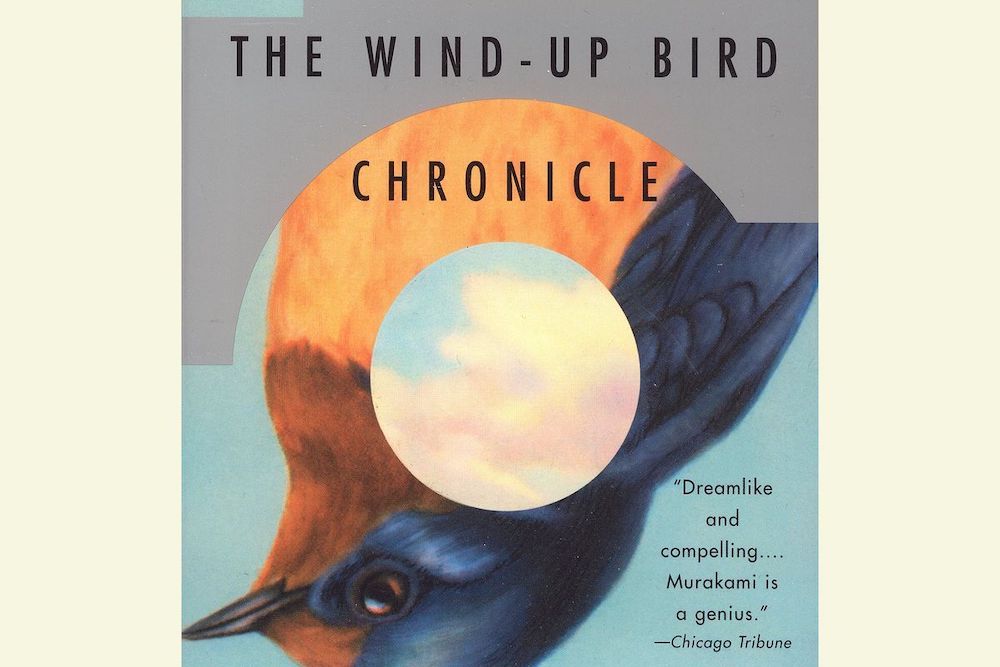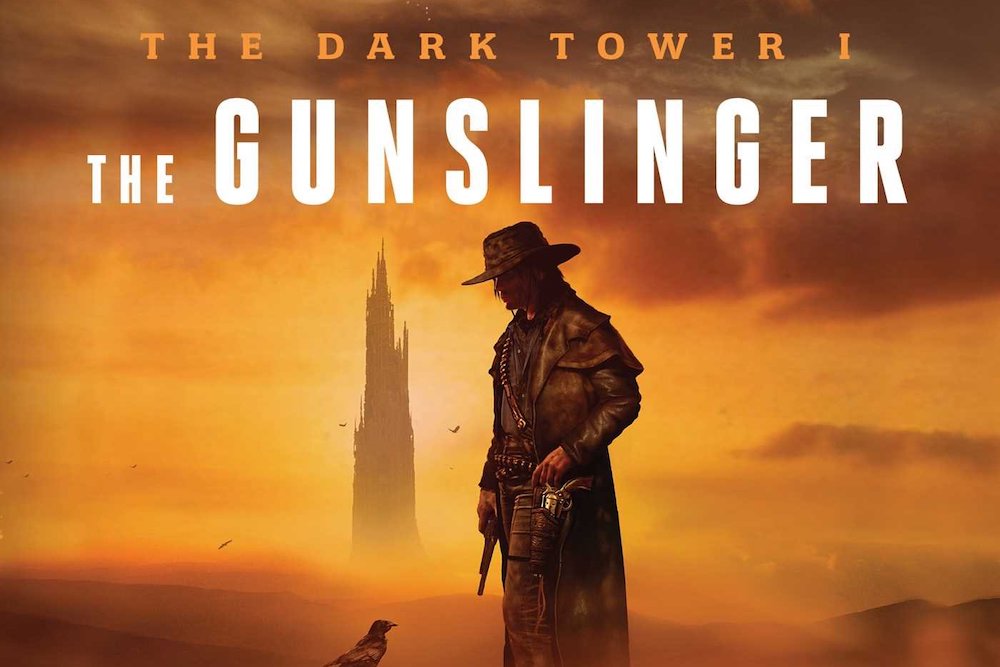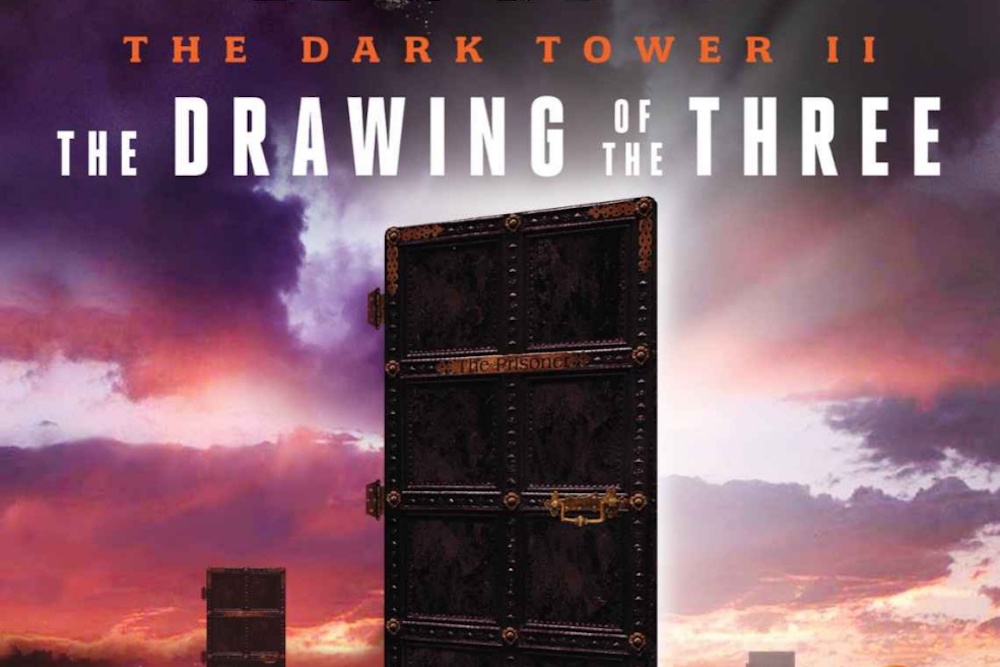This is not a comprehensive list of all of the metaphors and similes in The Wind-Up Bird Chronicle by Haruki Murakami. These are just the ones that stood out to me as being particularly enjoyable.
Hang on. How is this post relevant to writing?
Reading the works of other writers with a critical eye allows you to pick up on things that you may want to employ in your own writing. For example, I really appreciate the vivid imagery in Murakami’s comparative descriptions, and it’s something that I would like to use more of in my writing. I’m a huge advocate of collecting and analyzing bits of writing that you enjoy in order to gain a better understanding of how you can achieve a similar effect in your own work.
There is some debate as to whether the definition of simile must only include “like” or “as”, or if different connecting words might also be included. For the purposes of this post, I have included expressions which use other connecting words and phrases, such as “resembles”, “in the same way”, “seems”, and “than”, in addition to the regular “like” and “as”.
The definition of metaphor which I am using here is: a comparison in which something is stated to be something else literally, but the reader should understand that the statement is meant to be taken figuratively. For example, “Juliette is the sun”. Contrast this with “Juliette is like the sun” or “Juliette resembles the sun”, which are similes.
Entries in the list are vaguely chronological, but I have not included page numbers since different editions and formats will have different numbers.
If you disagree with any of my classifications, let me know in the comments below!
Metaphors
I tried to think, but I couldn’t get my head to work right. I didn’t even know what it was I wanted to think about. I was a vacant room. Inside, the music produced only a dry, hollow echo.
Similes
While I stood there looking at the garden, a pigeon on the TV antenna kept up its regular cooing, like some clerk stamping numbers on a sheaf of bills.
Even after the ringing stopped, the sound of the bell lingered in the indoor evening gloom like dust floating in the air.
But this was different. It was bothering me in a strange new way, digging at me like a little fish bone caught in the throat.
Now, however, just sitting on the couch in a suit felt like some kind of immoral act, like faking one’s curriculum vitae or passing as a woman. Overcome with something very like a guilty conscience, I found it increasingly difficult to breathe.
Then she closed her eyes, remaining utterly still, as if silently rebuking a faithless lover.
To say that their reception of me was cool would be an understatement. The doors of all the world’s refrigerators seemed to have been thrown open at once.
“Incredible,” she said. “Good for you!”
It sounded artificial, like praise for a son bringing home good grades.
A moment later came a small, dry thud. Nothing more. The sound was utterly dry, desiccated, as if you could crumble it in your hands.
It was like boxing with a ghost: your punches just swished through the air. There was nothing solid for them to hit.
I had no more plans for the afternoon than a migrating bird has collateral assets.
Whenever she blinked, her long fake eyelashes moved slowly up and down, like the long-handled fans operated by slaves in movies set in ancient Egypt.
“Oh, well, never mind,” she said, her voice like a little broom sweeping off the dust that had piled up on the slats of a Venetian blind.
A large white moon hung in the eastern sky like some ill-omened megalith.
Standing next to him, the short, stout, dark Mongolian officer looked like a little bear.
They watched Yamamoto’s skin being removed a piece at a time with the same kind of faces we might have if we were out for a stroll and stopped to have a look at a construction site.
Now and then, I heard the sound of the wind. As it moved across the surface of the earth, the wind made an uncanny sound at the mouth of the well, a sound like the moan of a woman in tears in a far-off world. That world and this were joined by a narrow shaft, through which the woman’s voice reached me here, though only at long, irregular intervals. I had been left all alone in deep silence and even deeper darkness.
With the skirt of the dress spread out around her, Creta Kano, riding atop me, looked like a soft, gigantic mushroom that had silently poked its face up through the dead leaves on the ground and opened under the sheltering wings of night.
The liquid seemed vaguely uncomfortable in its tall glass, as if it had nothing better to do than produce its little bubbles.
He seemed to be talking to the stainless-steel sugar bowl in the middle of the table, but of course he was speaking to me. The sugar bowl was just a convenient midpoint between us, toward which he could direct is speech.
Noboru Wataya responded with a single small nod, as if he were trying to conserve energy.
Noboru Wataya went on staring at me with that expressionless face of his — a face like a chunk of rock floating in space.
I was too tired to read such a long letter; I didn’t have the powers of concentration just then. When my eyes scanned the rows of handwritten characters, they looked like a swarm of strange blue bugs.
Like cancer cells, these memories have taken root in my mind and eaten into my flesh.
And yet there were times when I couldn’t help but sense an area inside Kumiko to which I had no access. In the middle of the most ordinary — or the most excited — conversation, and without the slightest warning, she might sink into silence. It would happen all of a sudden, for no reason at all (or at least no reason I could discern). It was like walking along the road and suddenly falling into a pit.
Despite these efforts, my body began to lose its density and weight, like sand gradually being washed away by flowing water.
“I’m saying this for your sake,” he called from behind me, his every word lodging in my back like a piece of shrapnel. “If you go any farther, you won’t be able to come back. Do you understand?”
The woman seemed to wring a sigh out of the core of her body.
Cold sweat crept down my sides like some kind of living creature.
“… I thought it just disappeared, to tell you the truth.”
May Kasahara fell silent. Then, with a note of caution in her voice, as if she thought my words contained some kind of trap for her, she said, “Just disappeared. Hmm. What do you mean, ‘it just disappeared’? That, all by itself, it… just… disappeared?”
All I could produce was a meaningless, ugly sound like the rubbing together of two meaningless, ugly things.
“Why not?” May Kasahara asked, with a note of disgust, as if she were speaking to a deformed animal. “Why haven’t you been thinking about it? You’re literally facing death right now. I’m not kidding around. I told you before, it’s up to me whether you live or die.”
The hunger pangs continued to come and go, and the darkness around me grew thicker and thinner, and with each new wave another chunk of my ability to concentrate would be taken away, like furniture being stripped a piece at a time by burglars in an empty house.
Not long after I gave up any effort to concentrate on thinking, all kinds of fragmentary memories began to visit me. They arrived in silence, like water slowly filling an underground cavern.
Once I started thinking about the air, weather invaded my mind as something real and imminent. It rose like black, silent water, seeping into every corner of my consciousness.
My body felt cold and shrivelled and dull, like a cucumber long forgotten in the back of the refrigerator.
I tried to make an appropriate response, but the little noise that came out of my throat sounded less like a response than like the gasp of an aquatic animal that had breathed the wrong way.
Her face was as expressionless as the bottom of a dried-up pond.
“You and I joined our bodies together in my mind.” When I heard myself actually speaking these words, I felt as if I had just hung a bold surrealistic painting on a white wall. And then, as if looking at the painting from a distance to make sure it was not hanging crooked, I said the words again: “You and I joined our bodies together in my mind. But I never asked you two for anything. It never even crossed my mind to find out anything from you. Right? So why did you take it upon yourself to do such a thing?”
The sight of Creta Kano in Kumiko’s clothing made me feel once again that reality was changing its direction somewhat, the way a huge passenger ship lumbers into a new course.
I couldn’t make out the expression in her eyes behind the dark glasses, but a kind of numbness seemed to have spread over her face, like oil poured on still water.
Even so, the anger, like water, seeped soundlessly into every corner of my body.
Here and there, like missing teeth, were vacant lots filled with summer weeds and surrounded by chain-link fences.
The evergreen oak looked almost annoyed as it trembled in the occasional puff of wind with an unpleasant creaking sound. The stones in the garden looked whiter and smoother than they ordinarily did, staring up at the sky impassively like the faces of dead people.
Watching the white clouds of the Mongolian soldiers’ breath bloom and vanish in the darkness, I felt as if a strange error had brought me into the landscape of someone else’s nightmare.
Certain kinds of information are like smoke: they work their way into people’s eyes and minds whether sought out or not, and with no regard to personal preference.
The hint of a smile played about his lips, as if he had just heard a joke and was smiling now in the most natural way. Nor had the joke been a vulgar one: it was the kind of elegant pleasantry that the minister of foreign affairs might have told the crown prince at a garden party a generation ago, causing the surrounding listeners to titter with delight.
He looked at me with eyes narrowed as if to apologize for being unable to speak because of the nervous black panther sleeping by his side. Which is not to say that there was a black panther sleeping by his side: he just looked as if there were.
The pleasant smile had begun to play about his lips again, appearing, and disappearing with all the naturalness of a seaside cave at the mercy of waves.
Lying in their new box, the old tennis shoes looked like tiny animal corpses.
People like me don’t get along well with dictionaries. Say I look up “transition” and it says: “passage from one state to another.” I think, So what? It’s got nothing to do with me. So when I see a dictionary on my desk I feel like I’m looking at some strange dog leaving a twisty piece of poop on our lawn out back.
My date was a nice enough guy, a college student, but I don’t know, I still can’t really get a sense of all kinds of things. It’s as if they’re out there, far away, lined up like dolls in a shooting gallery, and all these transparent curtains are hanging down between me and the dolls.
Anyhow, even though I might go out on a date with a boy, emotionally I just wouldn’t be able to concentrate. I’d be smiling and chatting away, and my mind would be floating around somewhere else, like a balloon with a broken string.
Just as the rubbing together of stones or sticks will eventually produce heat and flame, a connected reality takes shape little by little.
She narrated with the order and clarity of a documentary film projected on a stark white screen.
The blood was gone from their sunburned faces, which made them look like pictures painted on ancient urns.
The first thing she would do when she saw me was examine me top to bottom, with the eyes of a chef choosing vegetables.
Unlike the cats, who were more willing to accept their fate (or who at least appeared to accept it), the bears seemed unable to comprehend the fact that they are being killed. Possibly for that reason, it took them longer than was necessary to reach a final parting with that temporary condition known as life.
In a matter of moments, an animal would be reduced to hide, meat, organs, and bones, as if those elements had originally been quite separate and had just happened to come together for a little while.
The captain recovered his presence of mind and gave his order to the navigator, who passed it on to the engine room, and eventually, after a long fit of grinding, the antique engine started up like a sleeping dog kicked by its master.
And not just physically ugly: there was a certain clammy weirdness about him that I could not put into words—the sort of feeling you get when your hand brushes against some big strange bug in the darkness.
Anyone looking at him would have seen immediately the this was a man who paid absolutely no attention to the phenomenon of clothing. He wore what he wore strictly because he had no choice but to put something on when dealing with other people, as if he were hostile to the idea of wearing clothes at all. He might have been planning to wear these things the same way every day until they fell apart—like a highland farmer driving his donkey from morning to night until he kills it.
Ushikawa’s face broke up again into one of his big smiles, but his eyes remained as cold as glass.
The car looked like some kind of huge migratory fish, afraid of nothing.
He had inherited his mother’s slender, well-shaped fingers. They were long, but not too long. He held them up near his face and moved them without hesitation, and like some kind of sensible, living creatures they communicated his messages to me.
The wind grew stronger than it had been in the morning, sending one heavy gray cloud after another on a straight line east. The clouds looked like silent travelers headed for the edge of the earth.
Eventually, though, silence descended and began to burrow its way into the folds of my brain, one after another, like an insect laying eggs.
He wore the same clothes he’d had on three days earlier. I could have been mistaken about that, but he wore the same kind of suit and shirt and necktie, all grimy and wrinkled and baggy. These disgraceful articles of clothing looked as if they had been forced to accept an unfair portion of the world’s exhaustion and burdens. If, through some kind of reincarnation, it were possible to be reborn as Ushikawa’s clothing, with the guarantee of rare glory in the next rebirth, I would still not want to do it.
Sleepless nights are as unusual for me as sumo wrestlers who look good in berets.
I had not bothered with newspapers for such a long time that they now struck me as strange—cold and empty. The stimulating smell of the ink gave me a headache, and the intensely black little gangs of type seemed to stab at my eyes.
She tore off stamp-sized pieces of toast and transported them, one at a time, to her mouth. We looked out at the rain now and then, as if it were our longtime mutual friend.
Nutmeg’s earrings were large plastic things, the same exact color as her suit. They were a unique deep green that seemed to have been made from a combination of several colours, and so they had probably been special-ordered to match the suit. Or perhaps the opposite was true: the suit had been made to match the earrings—like making a niche in the wall the exact shape of a refrigerator.
The smoke of her cigarette rose straight up like an Indian fakir’s magic rope, to be sucked in by the ceiling ventilator.
Most of the time, the power of fate played on like a quiet and monotonous ground bass, coloring only the edges of his life.
The scene looked like something not of this world—a painting by a mental patient.
The cries of the Chinese men were not very loud—more like deep sobs than screams, as if they were heaving out the breath left in their bodies all at once through a single opening.
Not that I’m haunted by it or anything, but whenever there’s an opening (and my head has lots of openings!) it comes creeping in and sticks around for quite a while, the way smoke from a bonfire can come in through a window.
I had never seen a vacant house before, so I didn’t know what an ordinary vacant house looked like. But I guess I figured it would have a sad, beaten sort of look, like an abandoned dog or a cicada’s cat-off shell. The Miyazaki’s house, though, was nothing like that. It didn’t look “beaten” at all. The minute the Miyazaki’s left, it got this know-nothing look on its face, like, “I never heard of anybody called Miyawaki.” At least that’s how it looked to me. It was like some stupid, ungrateful dog.
I had become accustomed to this fixed daily routine the way people become accustomed to gravity or barometric pressure. There was a kind of warmth to Cinnamon’s punctilious regularity, something beyond mere mechanical predictability, something that gave me comfort and encouragement. Which is why a morning without Cinnamon’s appearance was like a well-executed landscape painting that lacked a focal point.
All of a sudden, I was asleep, as if I had been walking down a corridor with nothing particular on my mind when, without warning, I was dragged into an unknown room.
I listened for any sounds I could make out, but the silence was like a smooth, high wall.
Compared with Claudio Abbado’s youthful, fluid, contemporary performance, Toscanini’s had had a blood-stirring intensity to it, like the slow strangulation of a powerful foe who has been downed after a violent battle.
I sensed the darkness around me increasing in density, much as the evening tide comes to fullness without a sound.
What do you think of these metaphors and similes?
Haruki Murakami may write some pretty strange stories, but his descriptions are some of my all time favourites.
Which one is your favourite?
As always, feel free to discuss in the comments below or reach out via the contact form. I’d love to hear from you!
If you enjoyed this post, please consider subscribing to my email list by clicking the button below:




